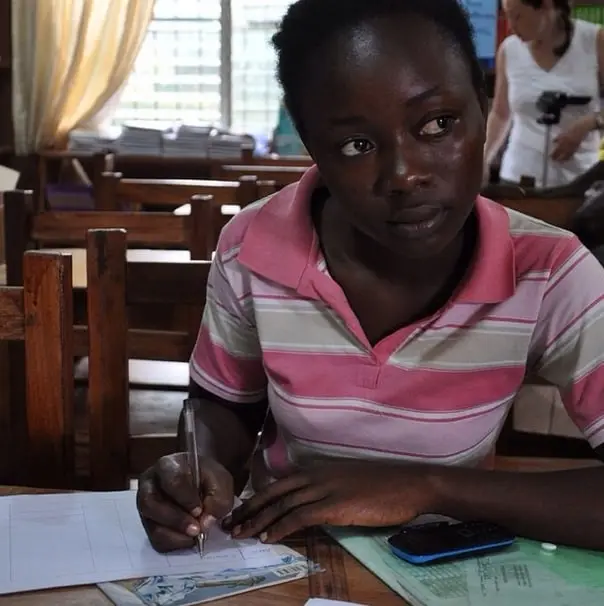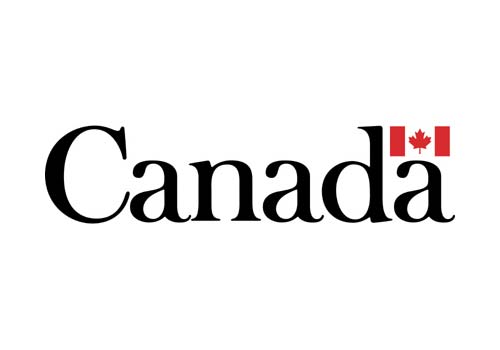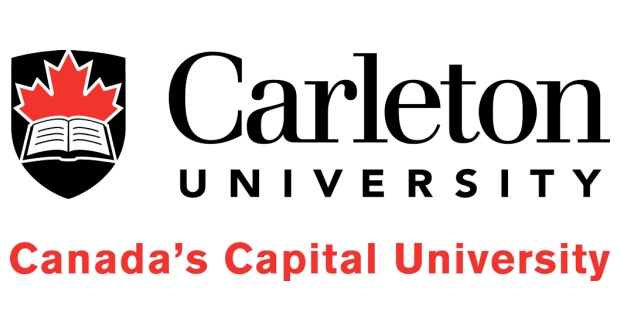Cross-Posted with ActiveHistory.ca
by Jill Campbell-Miller

Shocked, but not surprised.
It’s an ambivalent set of emotions that I, and I’m guessing many others, have become well acquainted with since 2016, when Trump first took charge of the White House. And it’s something that I felt acutely when I heard the news about Elon Musk gutting the United States Agency for International Development (USAID). After all, this is happening under the same President that once referred to Haiti and some African nations as “shithole countries,” so I could not be truly surprised. But it was still a shock when I read that as the unofficial head of the Department of Government Efficiency (DOGE), a group that has no Congressional authority, Musk began to shutter USAID operations at the beginning of February. Musk bragged on his social media platform that he was putting USAID “into the wood chipper.” At that time, the USAID website went dark, and as I am writing this, it is still down.
President John F. Kennedy created USAID through an Executive Order in 1961. Though many historians have pointed to earlier origins of humanitarian aid, stemming from imperial, colonial and missionary roots, the government aid programs that developed in mid-century North America were geopolitical and economic expressions of the post-war period. USAID consolidated the growing but piecemeal technical assistance, food aid, education and healthcare-based development programs already underway in parts of the US government throughout the 1950s. A similar consolidation of the Canadian program occurred when the Liberal Lester B. Pearson government created the Canadian International Development Agency (CIDA) in 1968.[1] As I’ve written about in this forum in the past, the government of Stephen Harper dismantled CIDA in 2013 to more explicitly align aid with the government’s foreign policy goals. While many observers disliked this change, no one could argue it was outside the norms of traditional democratic governance. Aid continued to be a feature of Canadian foreign policy. What is currently happening in the United States is quite different.
Clearly, self-interested economic and geopolitical considerations of the Cold War, such as the need to dispose of food surpluses and support American soft power influence against Communist powers, provided the political currency and motivation to spend aid dollars. Nonetheless, USAID and concomitant support for the Bretton Woods and other multilateral institutions reflected an ideal, emerging from the Second World War, that rejected the autarky of fascism and economic isolation of pre-war America, and sought to build international relationships. Of course, successive US administrations exploited the country’s economic and political power to support anti-democratic and autocratic regimes, including support for the military coup in Iran in 1953 and the dictatorship of Augusto Pinochet in Chile. Many critics argue that global trade arrangements have allowed those in wealthy countries to profit enormously from cheap and exploited labour within countries that receive aid.[2] But USAID and other contemporary nation-based development agencies did at least represent a vision of the global order that saw the prosperity and security of the rest of the world as relevant to the prosperity and security of those at home.
Aid has always been vulnerable to political winds of change and, indeed, fads. From the focus on family planning of the 1960s and 1970s, to the structural adjustment trends of the 1980s and 1990s, to the technocratic Sachsian approach of the 2000s (instead of more cowbell, think more bed nets), the desire to provide an ultimate “fix” to global poverty cheaply and easily is a cycle that has repeated itself over and over again.[3] That no such fix is possible has led to real donor and compassion fatigue, especially as international crises seem to multiply and intensify.
Adding to this fatigue, some small and big “c” conservatives have long been inclined to be skeptical of aid, asking why money that could be spent at home should be spent abroad (it often goes unnoticed that a lot of aid dollars have been spent at home, purchasing the items that are given abroad). Indeed, this was a question that Prime Minister John Diefenbaker himself once expressed privately in correspondence with one of his Ministers, Donald Fleming, during Canada’s early days of aid-giving.[4] But if anyone today has a relative connected to the “Proud” and Q-Anon adjacent social media universe, you will know that this point has escaped from an uncle’s passing reflection at the dinner table, and entered the online right-wing meme-a-verse. These memes paint government spending as a zero-sum proposition, where resources are spent either on foreign aid or, for example,homeless veterans, and usually contain false statistics. It does not help that such opinions are reinforced by the waste and scandals that have occasionally plagued aid-giving, such as the discovery that Oxfam employees were sexually exploiting women in Haiti. But more than that, they speak to the ideology that allowed USAID to be put into the metaphorical wood chipper.
I do not pretend to know what goes on in the mind of Elon Musk, but I do not think it was an accident that he targeted USAID first. Aid programs have never been an issue that motivated voters one way or another, and the issue has been rife with misconceptions about how much countries spend on aid, so they have always been vulnerable to election cycles. But in the present political context of the US, foreign aid programs stand in direct contradiction to the MAGA movement’s values. Tariffs promise national autarky, opposing the post-war order that encouraged international trade. Foreign aid closes off the mechanism that attempted to foster the growth of political and economic institutions worldwide, promoting more widespread participation in the international rules-based order.
Opposing aid also makes sense to the Christian Nationalist movement that supports Trump. As Vice President J.D. Vance argued in a Fox New interview, the cancellation of foreign aid could be justified by the theological concept developed by Thomas Aquinas of ordo amoris,which Vance stated meant that people “should love their family first, then our neighbors, then love our community, then our country, and only then consider the interests of the rest of the world.” This was an interpretation so out of line with post-Vatican II Catholicism that Pope Francis himself felt the need to correct it. Regardless, it is a view of Christianity that justifies America’s current global retreat from aid-giving. These beliefs lay far from the mission of the mainstream Christian development organizations that grew up in the post-war period alongside government aid programs. One such example is the Catholic organization Caritas Internationalis (the Canadian branch of this organization used to be known as Development & Peace). Officially recognized by the Vatican in 1954, Caritas’ stated aim is to “promote integral human development” and advocate “on the causes of poverty and conflict.”
Critics of aid who do care about global poverty have had no shortage of material to speak about in the past number of decades. Indeed, the development fads I noted above have left their own history of problems, from forced sterilization policies to the rigidly neoliberal governance imposed on highly indebted countries through structural adjustment policies.[5] Many criticized the United States for its hypocrisy in global affairs.[6] However, since the Second World War, it has never been the case that a US administration has so fully refused to state a commitment to the global order it helped create, or refused to participate in a dialogue about compassion and care for the world’s poorest.
Indeed, I find myself in the strange position of missing the hypocrisy. For all its problems, after seventy-five years, aid is needed. It will never “solve” global poverty, and even if it could, it would not be done cheaply or easily. But following a natural disaster or man-made conflict, it can feed and house people, support the construction of needed infrastructure, and help enable a society’s return to a new normal. In an era of climate change, this is more important than ever before. Many non-governmental organizations have become more strategic, focusing support on areas that show the greatest benefits for communities, such as funding small-scale women’s entrepreneurship. Global health campaigns have successfully eradicated diseases or reduced incidence of preventable diseases (bed nets do have their place after all). America’s retreat from this global responsibility will cause suffering, and that suffering will, as always, disproportionately affect those who are most vulnerable in their own societies. Given the comparative size of the US aid budget, representing 40 percent of all humanitarian aid given globally in 2024, it is unlikely that other wealthy democracies, such as Canada, will be able to fill this void, especially as the pressure to increase military budgets rises.
The destruction of USAID is representative of much more than the aid itself. It is the clear rejection of a global norm that, however imperfectly, acknowledges the humanity of all. For those of us that continue to value those principles, we must support those organizations and leaders that will do what they can to make up for America’s absence.
Jill Campbell-Miller, PhD, is a Research Analyst in the Government of Nova Scotia, but this was written in her capacity as a private citizen and does not reflect the views or interests of her employer. Jill is the co-editor of the volume Jill Campbell-Miller, Greg Donaghy, and Stacey Barker, eds. Breaking Barriers: Canadian Women and the Search for Global Order (Vancouver: UBC Press, 2021).
[1] The most complete history of CIDA remains David Morrison, Aid and Ebb Tide: A History of CIDA and Canadian Development Assistance (Waterloo: Wilfrid Laurier Press, 1998).
[2] From the middle of the 20th century, scholars such as Raùl Prebisch, Fernando Henrique, and Immanuel Wallerstein advanced different versions of the “core-periphery” model of development, arguing that global systems of trade and economics promoted the underdevelopment of the Global South through the development of the Global North. For a summary of their arguments, see David Simon, Fifty Key Thinkers on Development (New York: Routledge, 2005). Following accelerating globalization and the further advancement of free trade in the 1980s and 1990s, more recent scholars such as economist Paul Krugman have proposed updated versions of a similar argument. See Paul Krugman and Anthony J. Venables, “Globalization and the Inequality of Nations,” Quarterly Journal of Economics 110, no. 4 (November 1995).
[3] Jeffrey Sachs is a Columbia economist who became prominent in the media in the 2000s following the publication of his book, The End of Poverty (New York: Penguin Press, 2005) which argued that extreme poverty could be eliminated by 2025. He became popularly known for his public promotion of the mass distribution of insecticidal bed nets to discourage the spread of malaria. See Awash Teklehaimanot, Jeffrey D. Sachs, and Chris Curtis, “Malaria Control Needs Mass Distribution of Insecticidal Bednets,” The Lancet 369 (30 June 2007), 2143-2146. For an exploration of the real-world technical challenges associated with Sachs’ approach, see journalist Nina Munk’s book, The Idealist: Jeffrey Sachs and the Quest to End Poverty (Toronto: Signal, 2013).
[4] University of Saskatchewan Archives and Special Collections, DCC, Diefenbaker papers, John G. Diefenbaker to D.M. Fleming, 26 April 1961, Volume 532, File 802 Conf. World Relations – Economic Assistance Abroad. 1959-1961.
[5] One of the major critics of these structural adjustment policies (SAPs) is economist Joseph Stiglitz, whose book Globalization and its Discontents (New York: W.W. Norton & Company, 2002) argues that countries that found themselves indebted to international financial institutions such as the International Monetary Fund were forced to open their economies to the free flow of international capital without sufficient regulations. Stiglitz argued that when these policies had the effect of further destabilizing the economy, the same conditions imposed by SAPs prevented governments from providing social safety nets to help their populations.
[6] There is such a huge literature on this topic it is impossible to summarize. Noam Chomsky has been one of the most long-standing critics and vocal critics of hypocrisy in US foreign affairs, most recently putting out a new book with Nathan J. Robison, The Myth of American Idealism: How U.S. Foreign Policy Endangers the World (New York, Penguin Random House, 2024). Other examples include Ruth Blakely, State Terrorism and Neoliberalism: The North in the South (New York: Routledge, 2009) and Bradley R. Simpson, Economists with Guns: Authoritarian Development in US-Indonesian Relations, 1960-68 (Stanford: Standford University Press, 2008).






